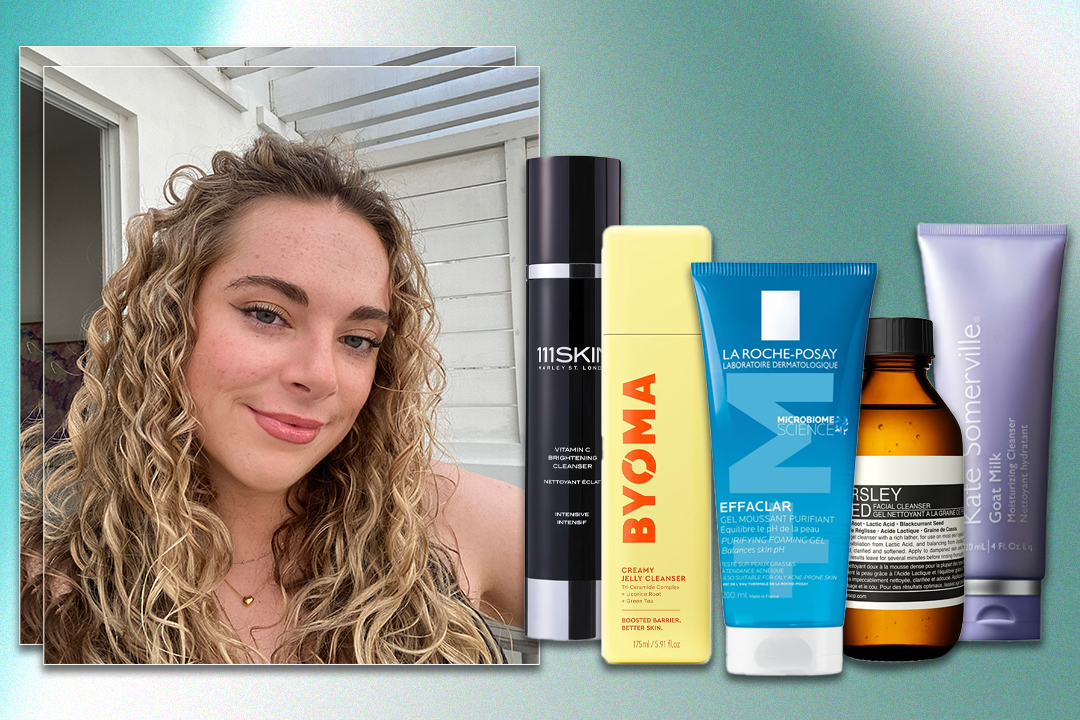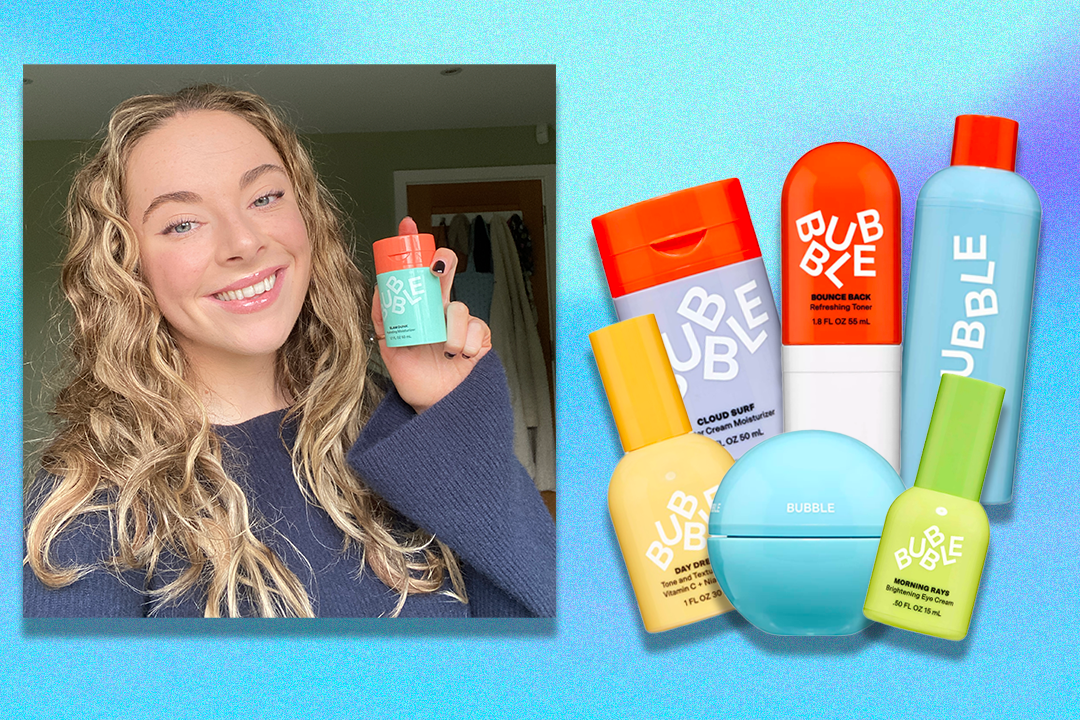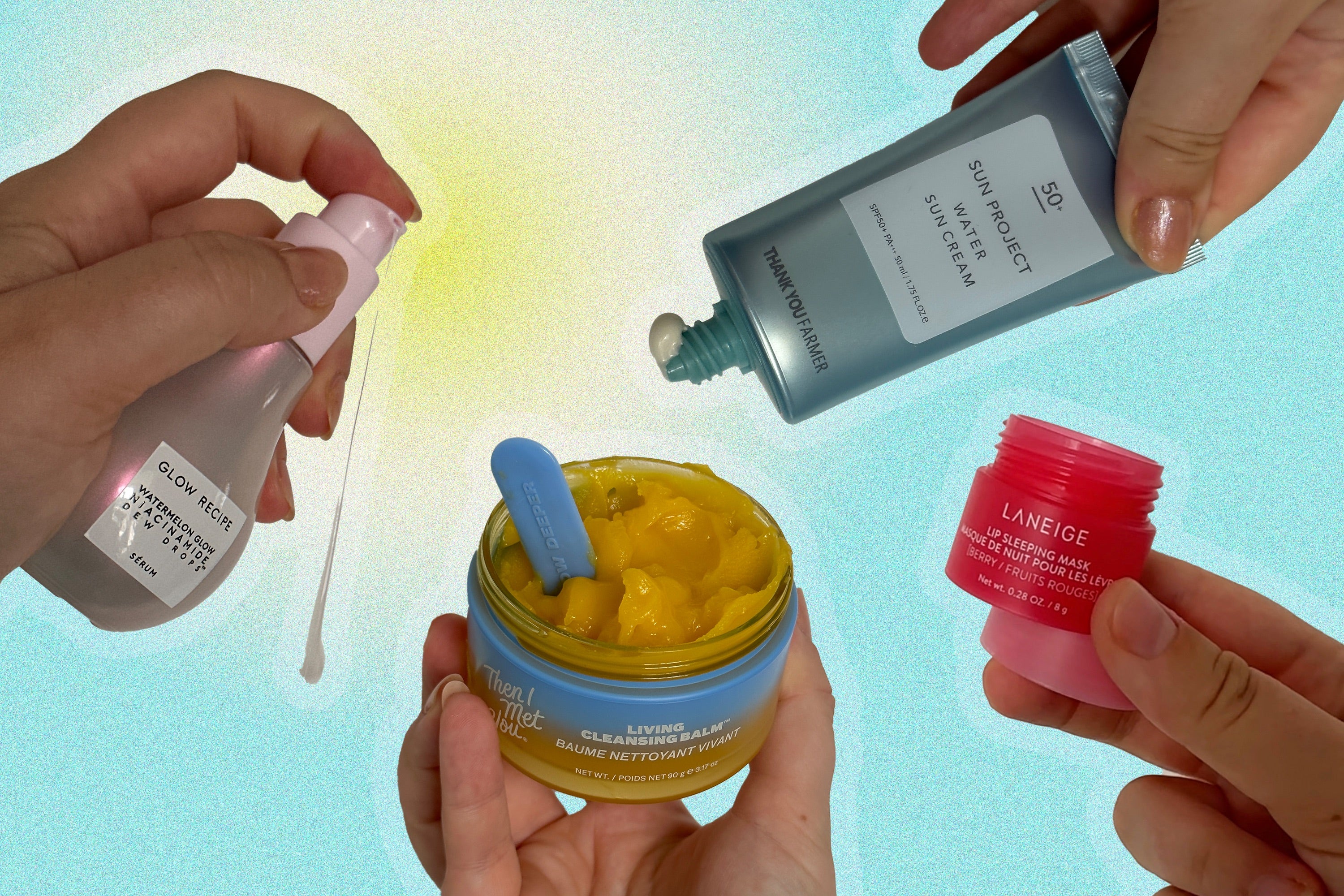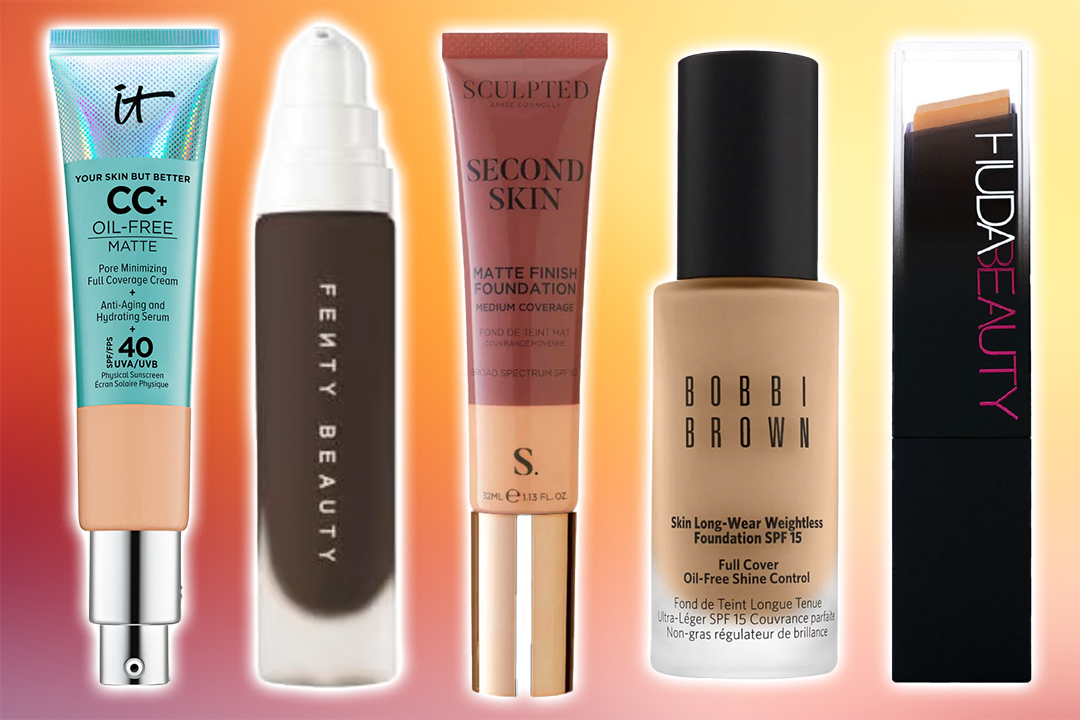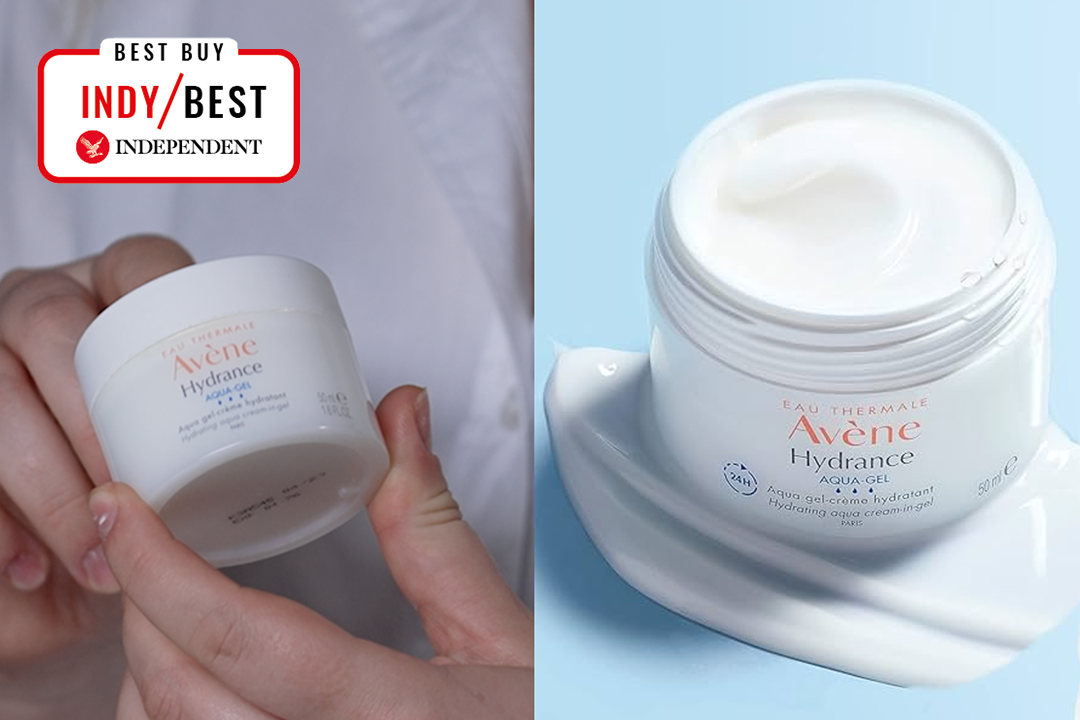
The Independent's journalism is supported by our readers. When you purchase through links on our site, we may earn commission. Why trust us?
18 best moisturisers for oily skin that hydrate and control shine, according to a beauty writer
From Charlotte Tilbury to La Roche-Posay, these oily-skin-friendly picks won’t compromise on hydration
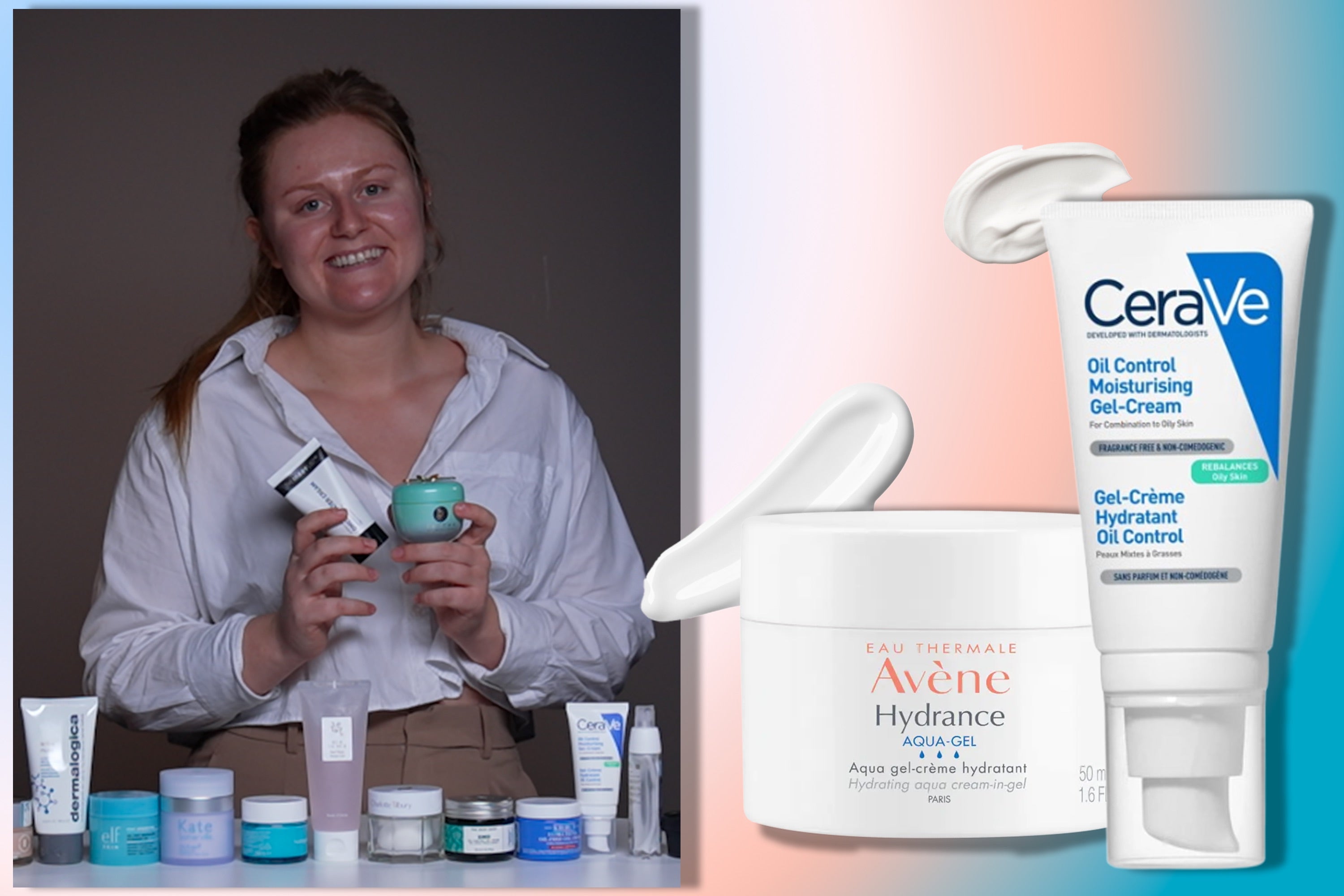
There’s a common misconception that the best moisturisers for oily skin don’t need to be hydrating. Much like acne brands used to define products for oily skin as those that strip the skin of its natural oils, moisturising advice for us shine-prone individuals has often toyed with the idea of skipping the hydrating step altogether. However, now’s the time to axe that attitude.
In reality, oily skin lacks hydration, while dry skin lacks moisture (and sometimes hydration, too). Confused? Well, in the world of skincare, ‘hydration’ relates to the skin’s water level, whereas ‘moisture’ is to do with oil levels. In a nutshell, this means the best moisturisers for oily skin should be both hydrating and water-based.
There’s a wealth of different formulas on the market, so, whittling down the options to the top performers can seem quite the daunting task. Fear not, though, as I’ve been busy testing myriad moisturisers – from budget-friendly formulas to premium picks – in a bid to bring you the cream of the crop. Here’s how I got on...
The best moisturisers for oily skin 2025 are:
- Best overall – Avène hydrance aqua-gel hydrating cream-in-gel: £25.25, Lookfantastic.com
- Best budget buy – Neutrogena hydro boost water gel moisturiser: £9.49, Amazon.co.uk
- Best anti-ageing formula – Murad nutrient-charged water gel: £50, Amazon.co.uk
- Best for oily, sensitive skin – La Roche-Posay toleriane dermallergo soothing cream: £23, Lookfantastic.com
- Best for men – Lush cosmetic lad moisturiser: £22, Asos.com
How I tested
After browsing the most searched for moisturisers for oily skin, alongside cult buys and beauty newness, I created a long list of the best budget, mid-range and premium options. After testing them over a five month period, from hot July to cold November, I then narrowed down my options to a shortlist of the best performing formulas for oily skin. During testing, I considered ingredients, hydration, heaviness, texture, shine-management, sensitivity (if any), price and packaging. Read on for my full verdict.
Why you can trust us
Lucy Smith is a beauty writer at The Independent who has written extensively about skincare within the wider beauty sphere, from hyaluronic acid serums to the best creams for psoriasis. Lucy has frequently spoken with dermatologists to glean more information about the best skincare solutions. She’s also tested many other oily skin saviours for IndyBest, from foundations to SPF. For this review, she leveraged her understanding of active ingredients while drawing on her own personal experience with each of the moisturisers featured.
Avène hydrance aqua-gel hydrating cream-in-gel

- Best: Overall
- Key ingredients: Water, glycerin, hyaluronic acid and squalane
- Fragrance-free: No
- Comedogenic: No
- Size: 50ml
- Why we love it
- Smells fresh and clean
- Absorbs into the skin instantly
French pharmacy skincare is always a delight to use, and this cream-in-gel from Avène is no exception. With a lightly floral and fresh scent, it feels like a douse of cool water on the skin and, price-wise, isn’t too hefty. I’ve been using it intermittently for months and, every time I do, my skin feels quickly hydrated and ready for my SPF and make-up thereafter. Plus. being a slippery gel, a little bit goes a long way, so you get even more bang for your buck.
Ingredients-wise, I enjoy that the formula isn’t overly complicated, which means it can slot more easily into my routine.
Neutrogena hydro boost water gel moisturiser
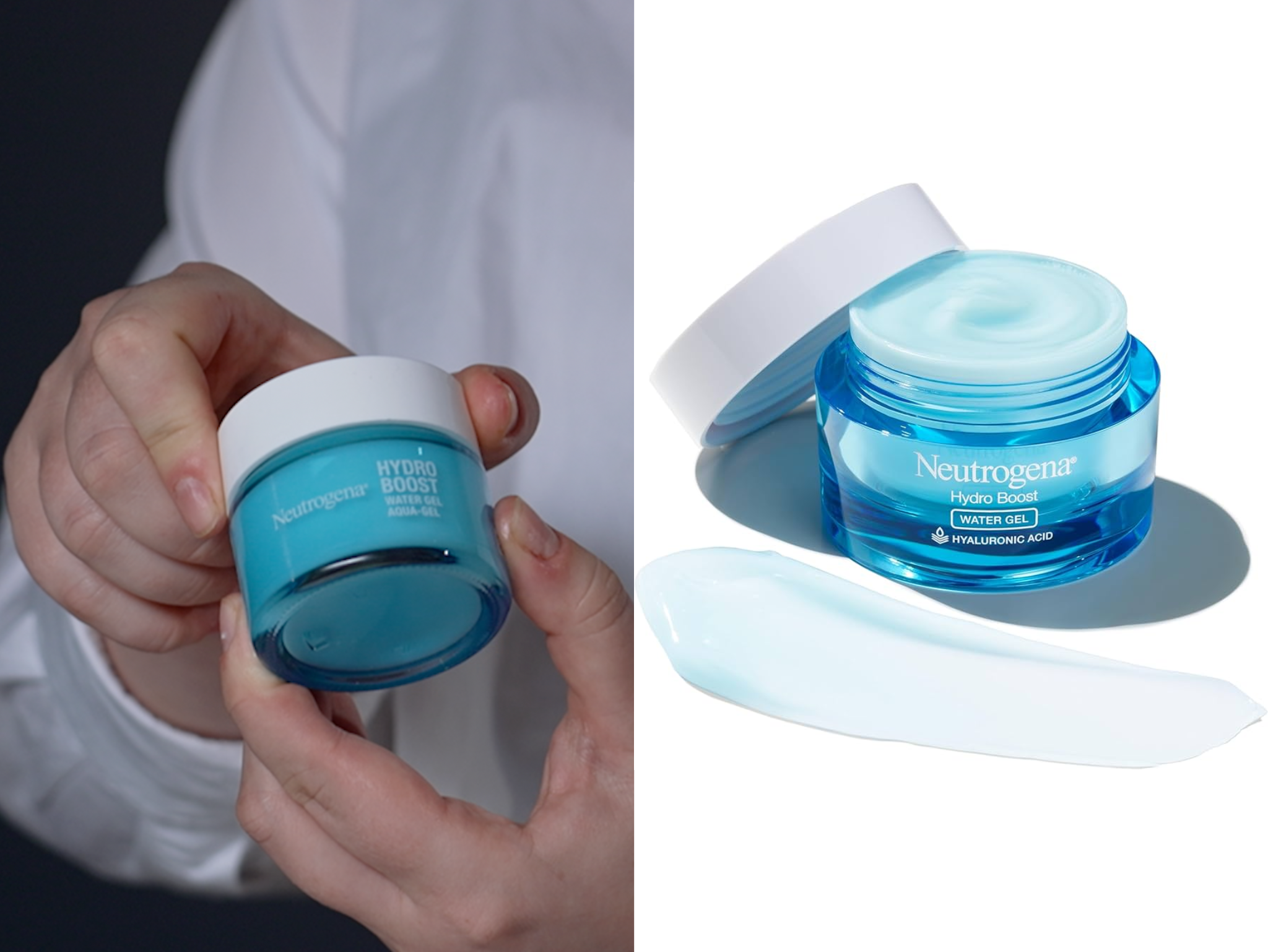
- Best: Budget buy
- Key ingredients: Water, glycerin and hyaluronic acid
- Fragrance-free: No
- Comedogenic: No
- Size: 50ml
- Why we love it
- The scent is pleasant and refreshing
- Hydrates without provoking excess shine
Whenever my disposable income has been spread a little thin, this moisturiser has been my affordable go-to. It’s easy to pigeonhole Neutrogena as the brand you used in your teenage acne era, but the hydro boost range is a bit of an unsung hero. This, the water gel moisturiser, is just as easy to slather on in a 6am haze as it is as part of a seven-step skincare routine and, with hyaluronic acid, it’ll keep your skin hydrated from dawn until dusk, whether you pair it with a serum or apply it on its own.
For me, the water gel description is accurate – the product does feel instantly cooling on the skin. Don’t be too generous with your application, though, as the formula can leave a film on the skin.
Murad nutrient-charged water gel
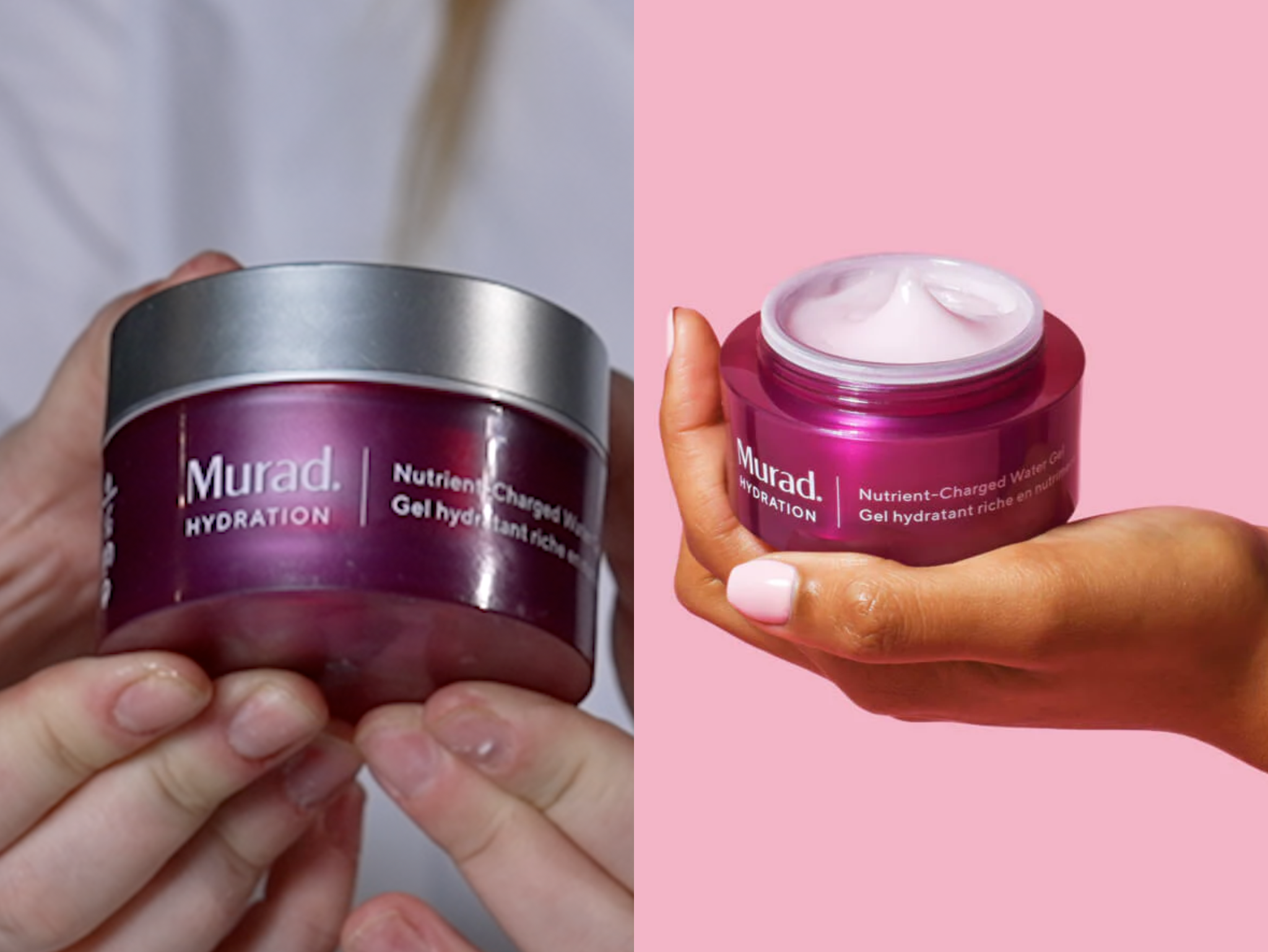
- Best: Anti-ageing formula
- Key ingredients: Water, glycerin, urea to soften, ceramides, peptides, taurine to energise, niacinamide
- Fragrance-free: No
- Comedogenic: No
- Size: 50ml
- Why we love it
- Has so many benefits, from anti-ageing to oil-balancing and nourishing
- Take note
- You can’t really detect the fragrance, so, it’s a shame it’s included, as it could upset sensitive skin
For the slightly higher price point here, I was pleased to see a wide-ranging list of skin-loving ingredients. Indeed, from taurine (to help the skin appear brighter and tighter) to peptides (for irritation-free anti-ageing), Murad’s nutrient-charged water gel is a cocktail of goodness for the complexion.
Upon application, it’s smoothing and quick to absorb. A small amount (about the size of a 5p coin) is all you need, as it will stretch across the whole face. When I had a touch of irritation on my cheek, however, this formula wasn’t as soothing as I might have liked – a result of the added fragrance, I’d argue. I also felt the pink-tinge is a tad gimmicky, if I’m being picky. Although, it does make for a good skincare #shelfie, if that’s your thing. Overall, though, I was impressed with the benfits this formula brings to the table.
Beauty of Joseon red bean water gel
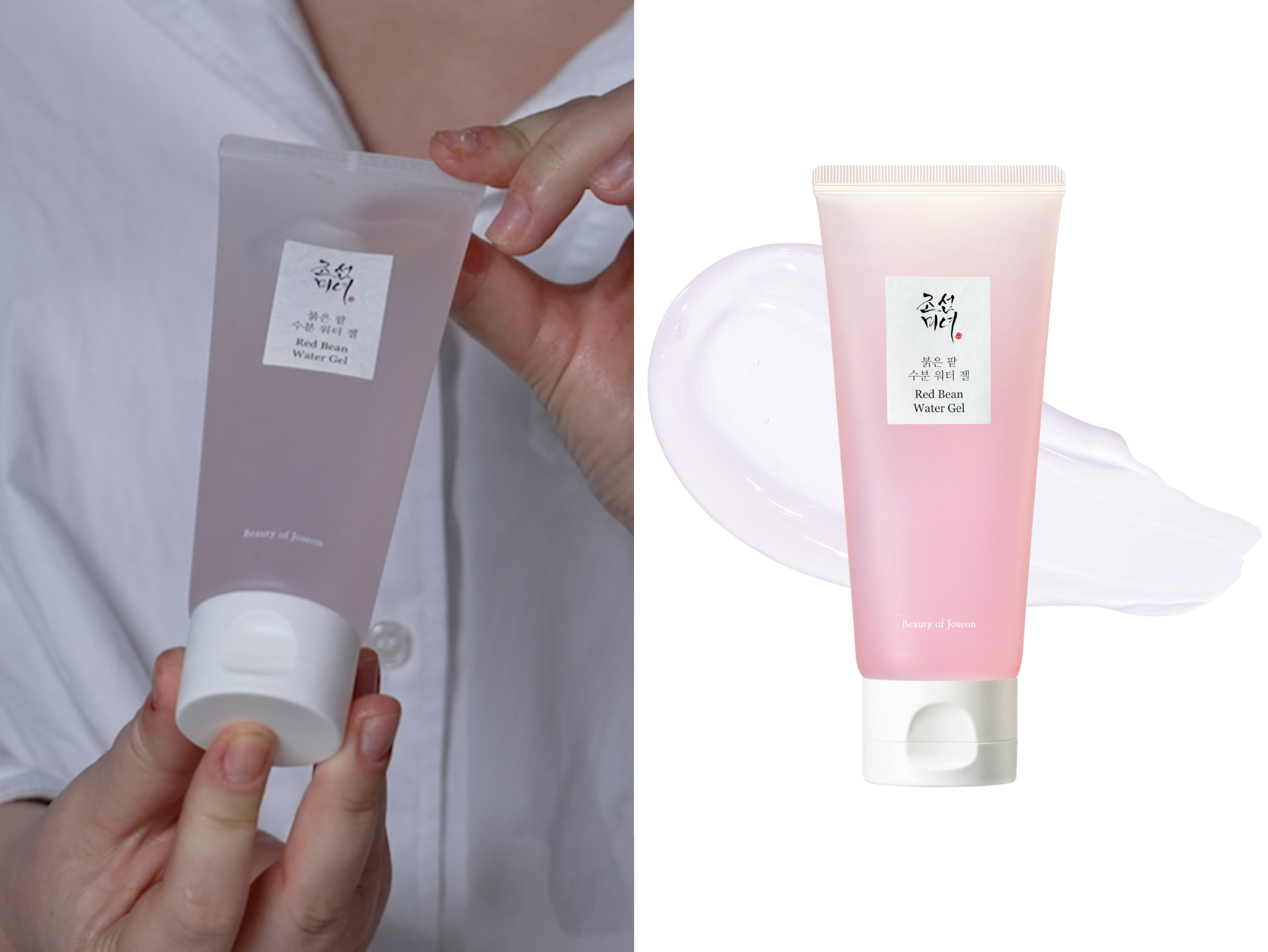
- Best: Korean skincare moisturiser
- Key ingredients: Water, glycerin, peptides and vitamin E-rich sunflower seed oil
- Fragrance-free: No
- Comedogenic: No
- Size: 100ml
- Why we love it
- Oh-so-cooling to apply, would make a great summer moisturiser
- Double the size of most
Korean beauty brands are having a moment, and this water gel from Beauty of Joseon is a perfect example of what makes such skincare formulas so popular. With lots of natural elements, from skin barrier-strengthening japonica root to moisture-maximising sunflower oil, this gel moisturiser combines herbal traditions with more modern skincare elements, such as peptides. Together, these make for a ‘cover all angles’ approach and, in actuality, a formula that feels equal parts potent and gentle.
The generously sized tube is a definite bonus, and the feel of the gel on the skin was akin to a sorbet: cooling and soothing. I frequently reach for it when I’m not sure what my skin wants, comforted in the knowledge I can still integrate some anti-ageing elements, without the potential reactivity of a retinol or retinal.
La Roche-Posay toleriane dermallergo soothing cream
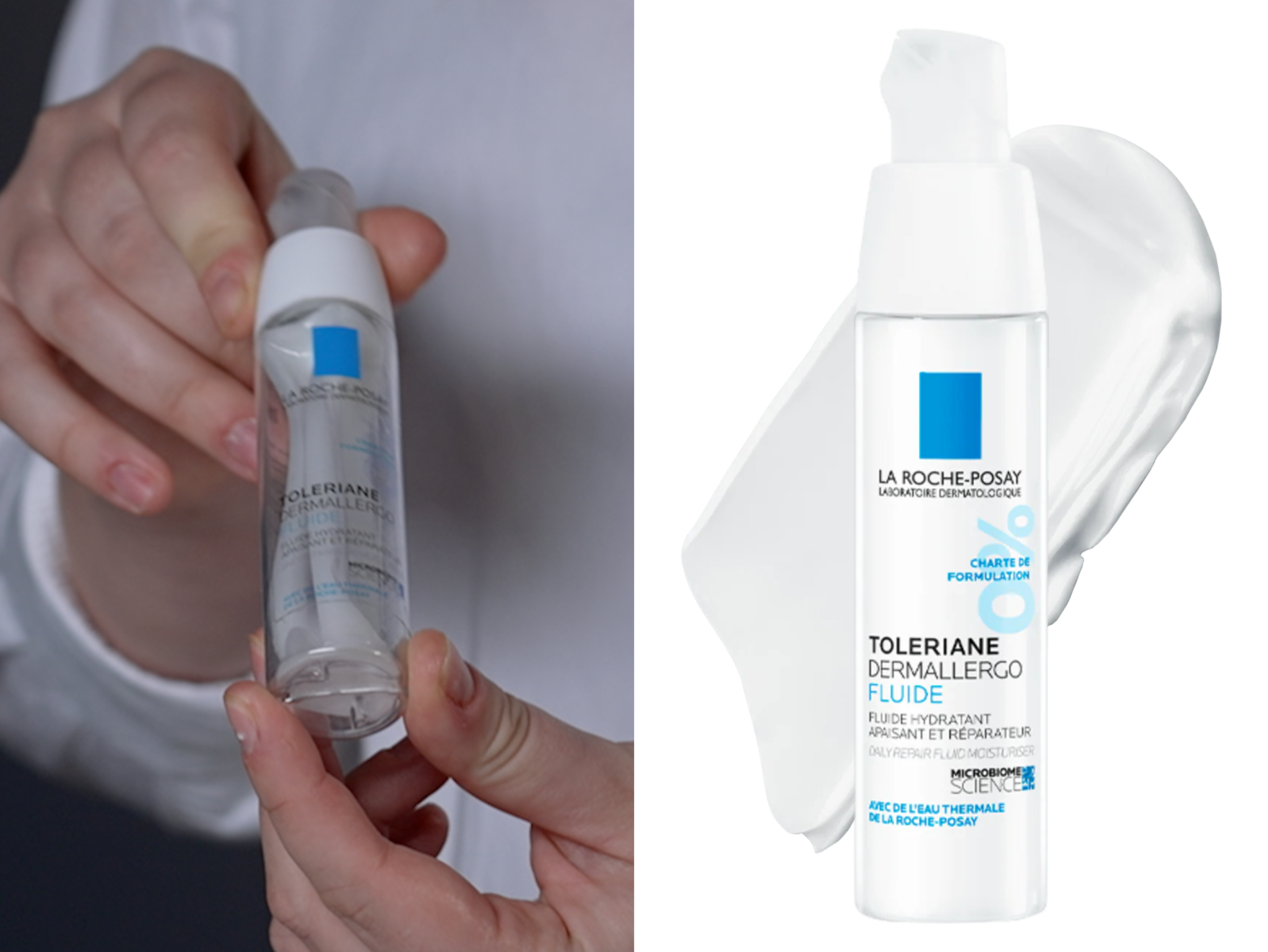
- Best: For oily, sensitive skin
- Key ingredients: Water, shea butter, sensitive skin-friendly salvia root and squalane
- Fragrance-free: Yes
- Comedogenic: No
- Size: 40ml
- Why we love it
- Suitable for even the most sensitive of skin types
- Packaging ensures you’re able to use every last drop of product
This is a one-stop shop when it comes to addressing all your sensitivity and shine woes. The formula is lightweight, calming and, regarding that latter characteristic, can be applied to even the most delicate of sunburns and sensitivities. I’ve reached for it in pretty much every circumstance (having used it in excess of five years) and it never causes so much as a tingle upon application.
Plus, it’s adequately hydrating, while keeping shine to a minimum, and, paired with a niacinamide or mattifying SPF, it will keep your complexion looking Photoshop-smooth all day.
Tatcha the water cream
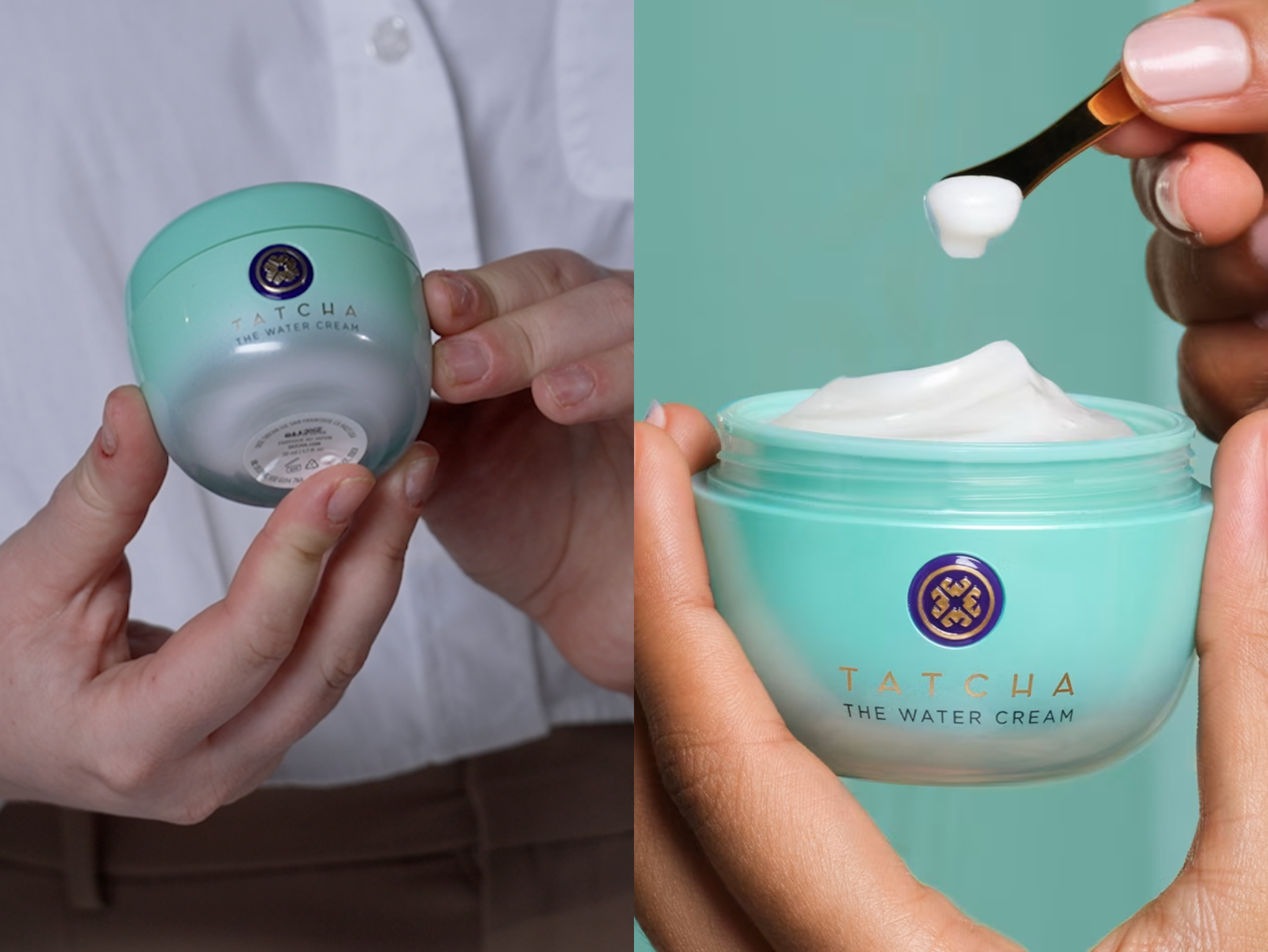
- Best: Japanese skincare moisturiser
- Key ingredients: Water, antioxidant Japanese rose, glycerin, hyaluronic acid and alcohol
- Fragrance-free: No
- Comedogenic: No
- Size: 50ml
- Why we love it
- Included applicator wand is handy
- Jam packed with soothing ingredients
- Take note
- Perhaps a little too greasy for the oiliest of complexions
Much like Korean skincare, Japanese skincare is equally hype-worthy and designed to leave skin in tip-top condition. Tatcha’s water cream fits this bill to a tee, thanks to its inclusion of Japanese rose, to help hydrate and soothe; green tea and algae, to ensure an even, youthful complexion; and rice to protect the skin against irritation. I was, however, slightly disappointed to spot alcohol among the formula’s ingredients but I personally didn’t experience any dryness as a result.
For those with acne-prone skin, the included spatula negates the worry of excessive face touching – though, you’ll have to keep on top of cleaning the tool – and the whipped-like texture of the cream is indulgent upon application. It’s a real treat to use this at the end of a long day, that’s for sure.
Simple soothing water face cream
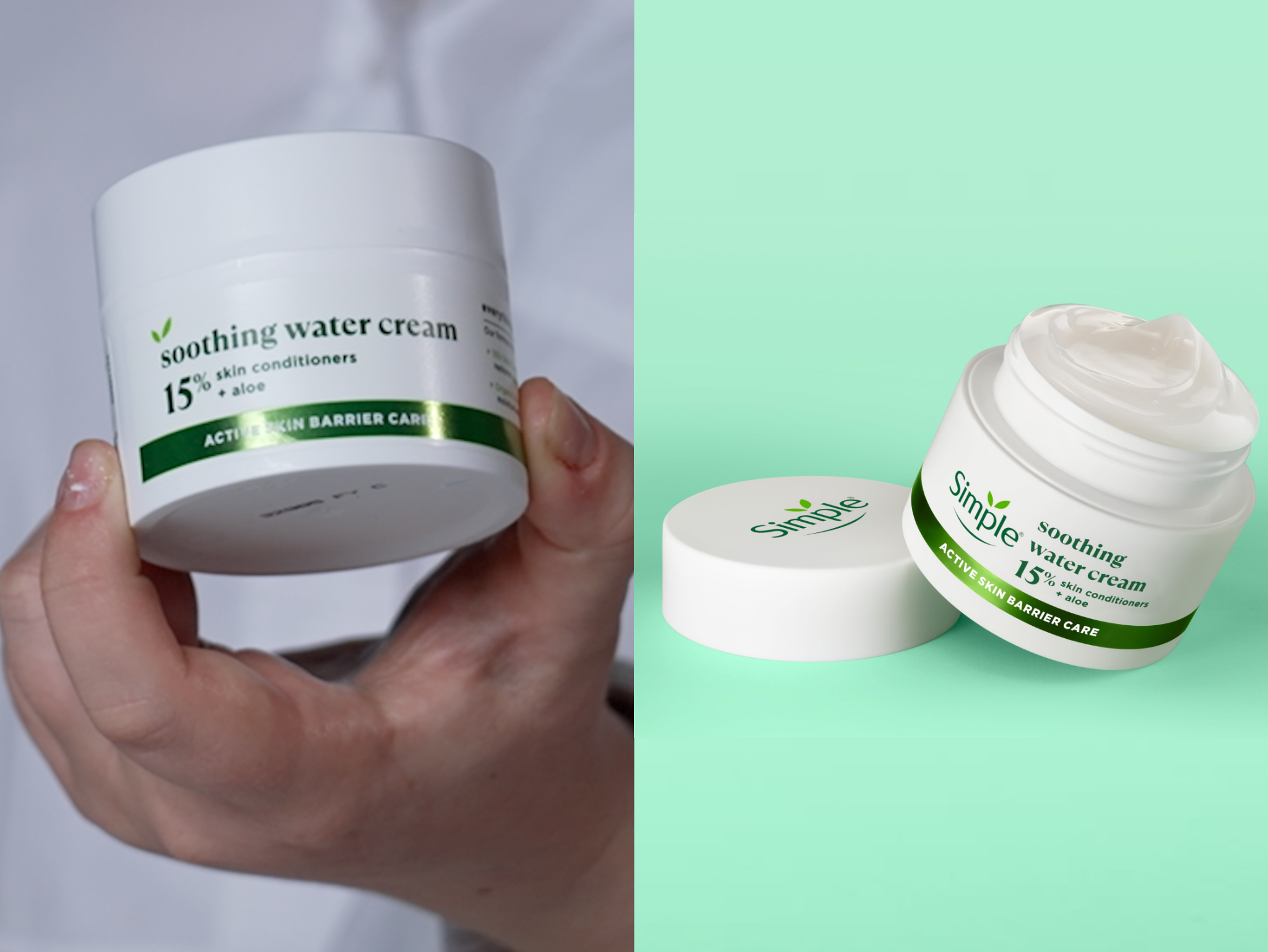
- Best: For a damaged skin barrier
- Key ingredients: Glycerin, aloe vera, water
- Fragrance-free: Yes
- Comedogenic: No
- Size: 50ml
- Why we love it
- Feels calming upon application
- Take note
- It’s not a “clean” formula, as there are a fair few unintelligible ingredients and synthetics, such as hydroxyacetophenone
Another good option if you’re looking to save a few pennies, this brand’s skincare lives up to its name: it’s simple. This formula features just two notable ingredients – glycerin and aloe – in addition to its water base, and keeps skin hydrated without any bells and whistles. Upon testing, I was pleased with the feel of the moisturiser on my skin (creamy yet lightweight) and found it easy to apply my subsequent primer, concealer, and so on. Granted, it took a couple of seconds longer than some premium options to adequately permeate the skin, but it did keep my oily skin on the right side of dewy. For its cheap-as-chips pricing, I couldn’t ask much more of it.
Kate Somerville oil-free moisturiser
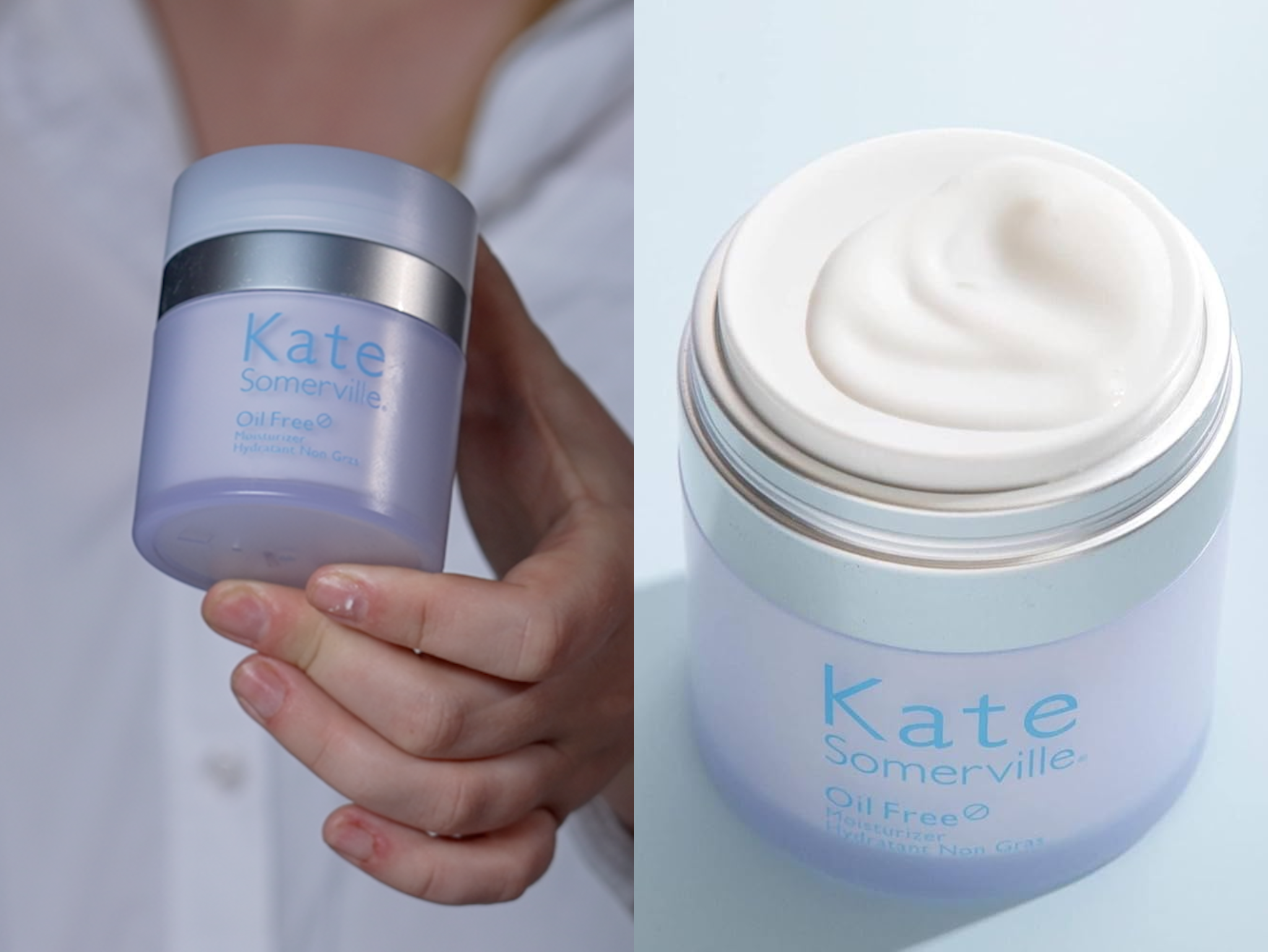
- Best: For oily and combination skin
- Key ingredients: Water, algae extract to tighten, skin health-boosting xylitylglucoside
- Fragrance-free: Yes
- Comedogenic: No
- Size: 50ml
- Why we love it
- Signature push-button packaging
- Suitable for sensitive skin
- Take note
- Not as shine-controlling as you might want
I’m a huge fan of Kate Somerville – from the goat milk cleanser to the delikate serum, the brand rarely lets me down. With a push-button dispenser to perfectly distribute one application’s worth, the packaging of this oil-free moisturiser is of a high calibre – something I’ve come to expect from this brand. Upon using this formula, I did find the cream to be a tad greasier than I might have liked but, on those at-home days when my skin needed some TLC, I wasn’t averse to the lingering moisture.
Indeed, the formula was a wonder when it came to calming flare ups – no surprise, given Somerville herself created the brand as a solution to her own skin sensitivity. I’d recommend the cream for night-time use or for days when a long-lasting matte finish isn’t paramount.
E.l.f. holy hydration! face cream
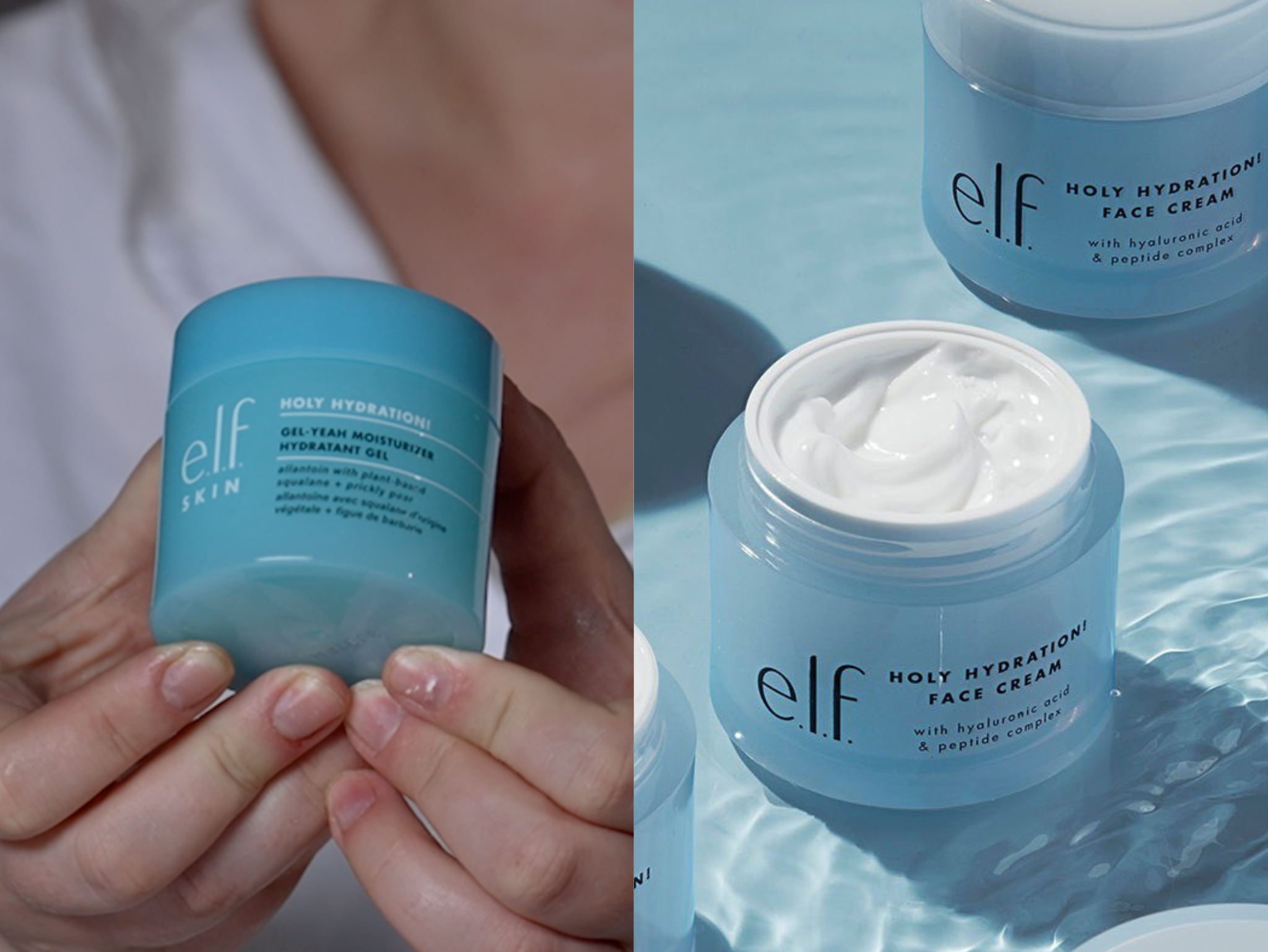
- Best: Value for money
- Key ingredients: Water, glycerin, hyaluronic acid, squalane, peptides and niacinamide
- Fragrance-free: No
- Comedogenic: No
- Size: 50ml
- Why we love it
- Great value
- Pleasant scent
- Fragrance-free version available, too
- Take note
- Can pill
For the price, this moisturiser packs a punch, with four skin benefits, from oil-balancing to hydrating. As someone who enjoys scented skincare, I found the clean fragrance a pleasant way to kick off my day, though, I know a hoard of #skinfluencers who’d disagree with me. For those who are anti-fragrance-inclined, the formula handily comes in a naked iteration, so you can wave goodbye to any worries of perioral dermatitis.
Upon application, the gel feels cooling and, as its name suggests, instantly hydrating. I did find it prone to peeling/rolling off my skin if I worked my SPF into my face too eagerly, but it wasn’t a constant qualm.
Lush cosmetic lad moisturiser
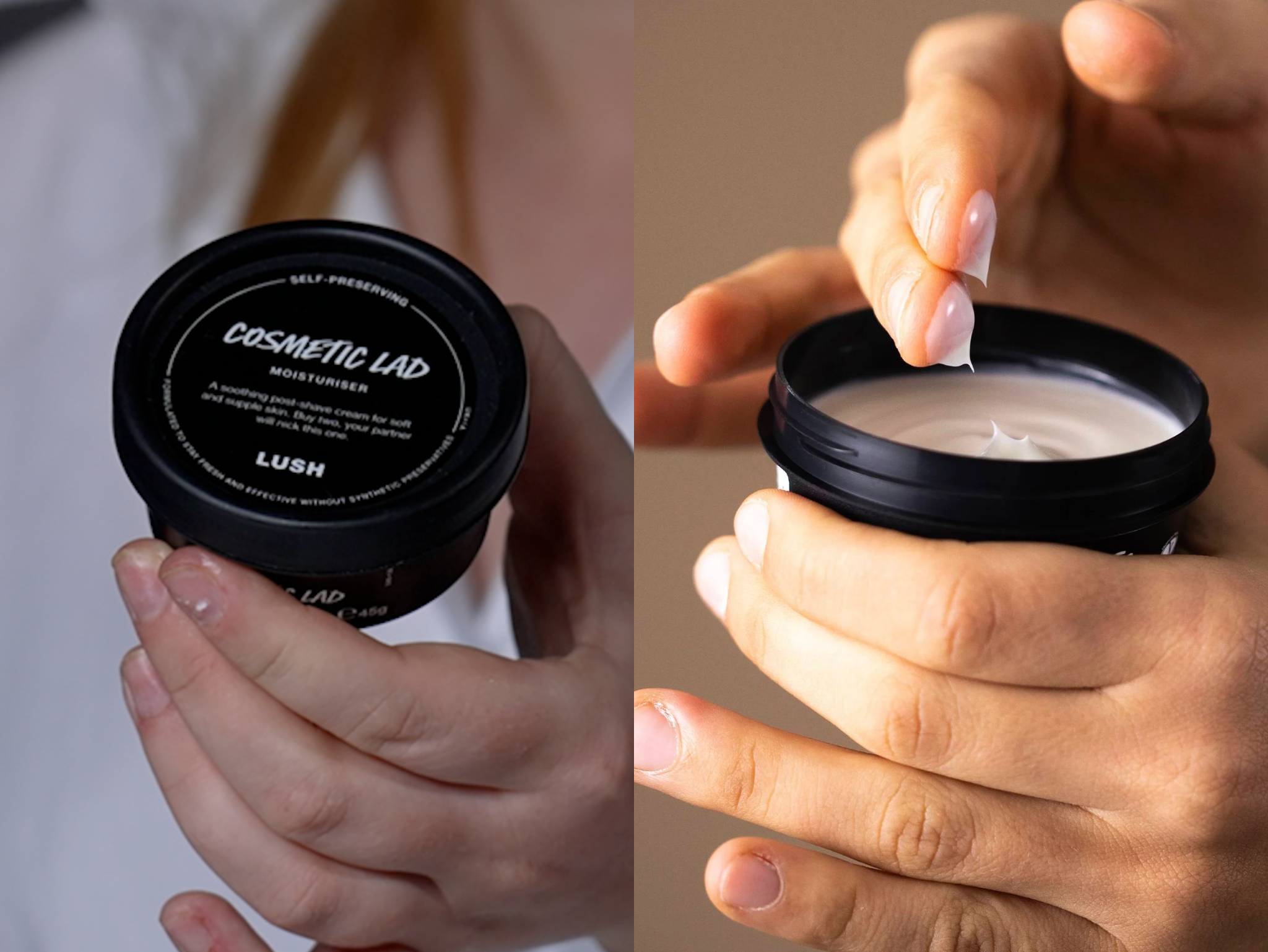
- Best: For men
- Key ingredients: Shea butter, anti-inflammatory tangerine oil, glycerine (a slightly less pure version of glycerol, versus glycerin) and anti-fungal chamomile
- Fragrance-free: No
- Comedogenic: Yes, because of its included cocoa butter
- Size: 45g
- Why we love it
- A top pick for those who suffer from redness or irritation
- Take note
- Not suitable for those prone to blackheads or acne
Perhaps more of a winter-specific moisturiser for oily skin, Lush’s cosmetic lad formula is thick in feel and floods patches of irritation with its comforting lubrication. You don’t need a lot with this cream – which justifies its slightly smaller tub size – and it doesn’t drag, instead slipping from chin to cheek with just a dollop about the size of a chickpea.
For me, it was too greasy for everyday wear and unsuitable for my regrettably blackhead-prone skin. Then again, I’ve plenty of pals with oily complexions who are comfortable with more heavily textured creams. So, if you fall into that camp, this Lush option might be the perfect pick for you.
Kiehl's ultra facial gel-cream
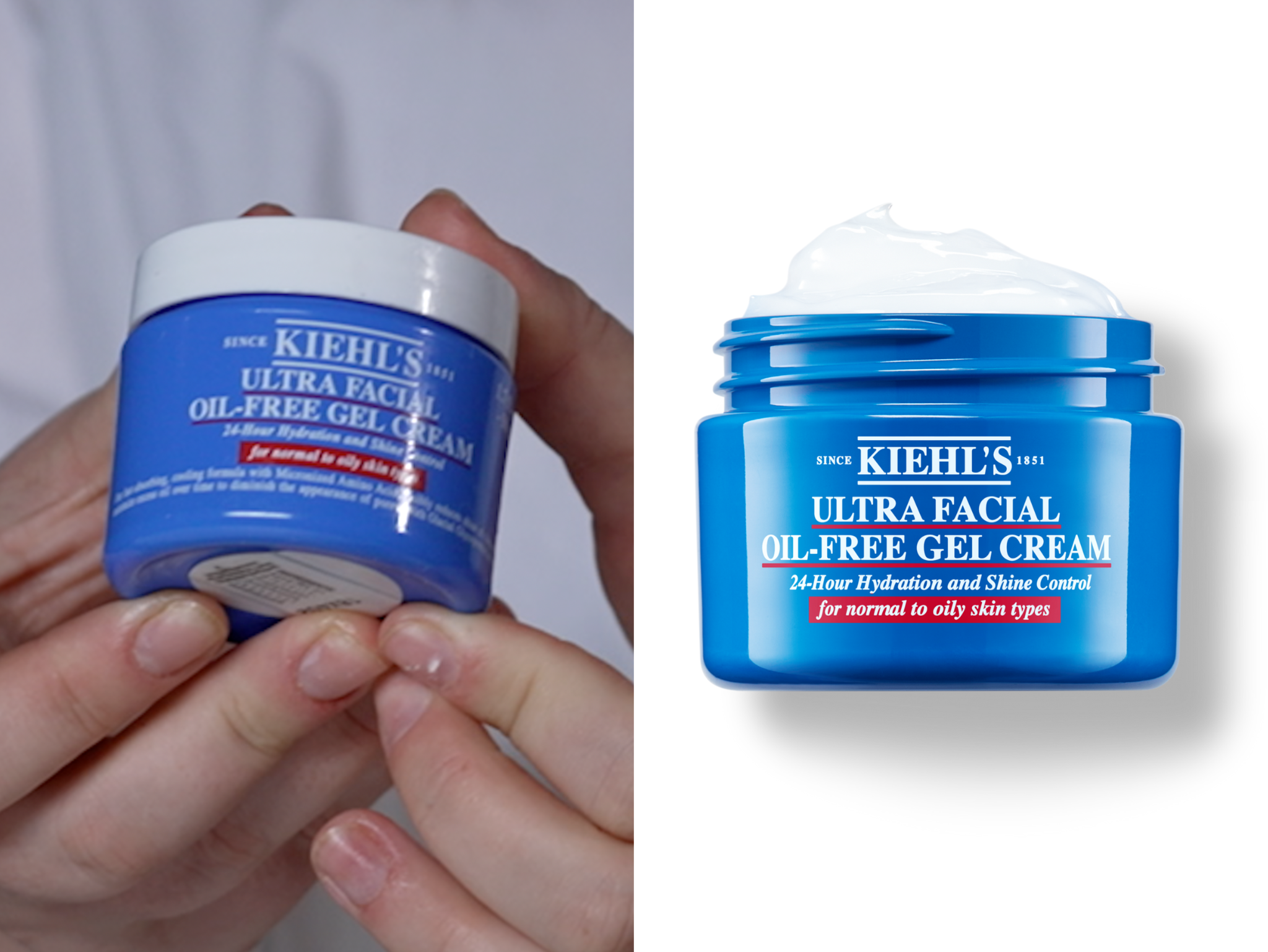
- Best: For redness
- Key ingredients: Water, glycerin, hydration boosting grass root extract (carbomer imperata cylindrica root) and moisture-sealing antarcticine (an Antarctic marine-derived protein)
- Fragrance-free: Yes
- Comedogenic: No
- Size: 50ml
- Why we love it
- Will bring damaged skin barriers back from the brink
- Takes to skin like a quick drink of water
- Take note
- I’d have liked a few more skin benefits, for the price
I really enjoyed using this gel-cream – I’d liken it to Clinique’s moisture surge, in terms of feel and performance. Much like Clinique’s product, Kiehl’s formula is king of quenching the skin. However, apart from hydration, this gel-cream doesn’t really offer much else on the skin benefits front. I do think there’s space in the market for this type of formula – indeed, there’s something to be said for the products that know their worth away from the latest beauty industry buzzwords – but perhaps not for nigh on £40. Would I repurchase it? Yes, I would, but I don’t doubt you can get similar benefits elsewhere, for less cash.
The Inkey List omega water cream
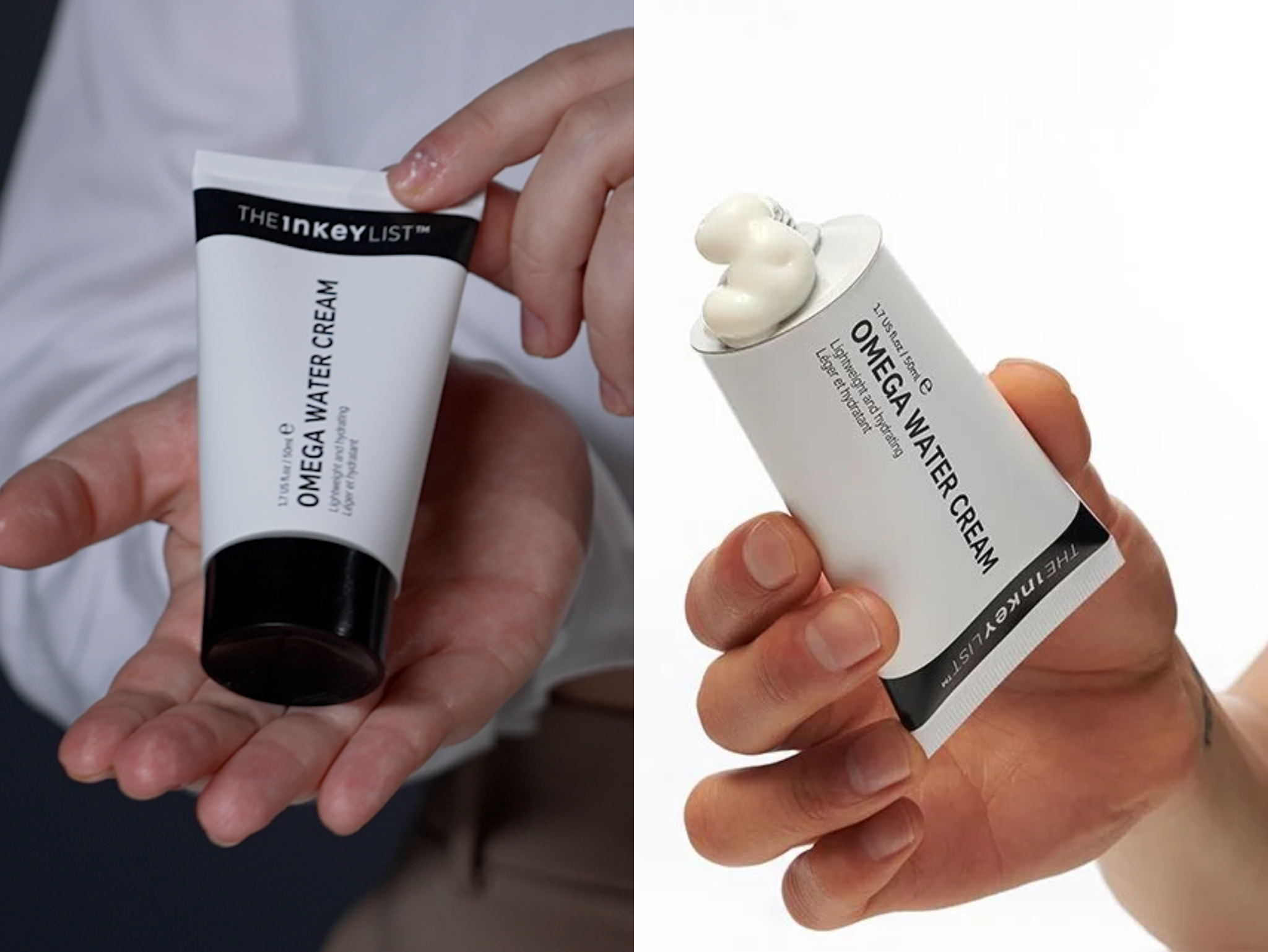
- Best: For dehydrated, oily skin
- Key ingredients: Water, niacinamide, anti-inflammatory oleic acid and barrier-boosting lipids
- Fragrance-free: Yes
- Comedogenic: No
- Size: 50ml
- Why we love it
- A good pick for damaged, overworked skin
- Take note
- Needs a little more rubbing in than its gel counterparts
This cream has a cult fan base, thanks to its relatively affordable, no-nonsense formula. I’d actually liken the brand to CeraVe on that front and, you’ll notice, The Inkey List does away with unnecessary costs on fancy packaging, fragrance and expensive botanicals. Here, your skin will be met with moisture, shine-control and oleic acid to calm flare ups, without any frills.
Does it do the job? Absolutely – it’s a lovely day-to-day moisturiser and a good pick for those with a more varied skin type (oily in the summer, combination in the winter), owing to its slightly thicker formula. That’s not to say it’s too thick for oily skin, but I did find it took a little longer to work it into the skin.
Dermalogica active moist light hydrating fluid
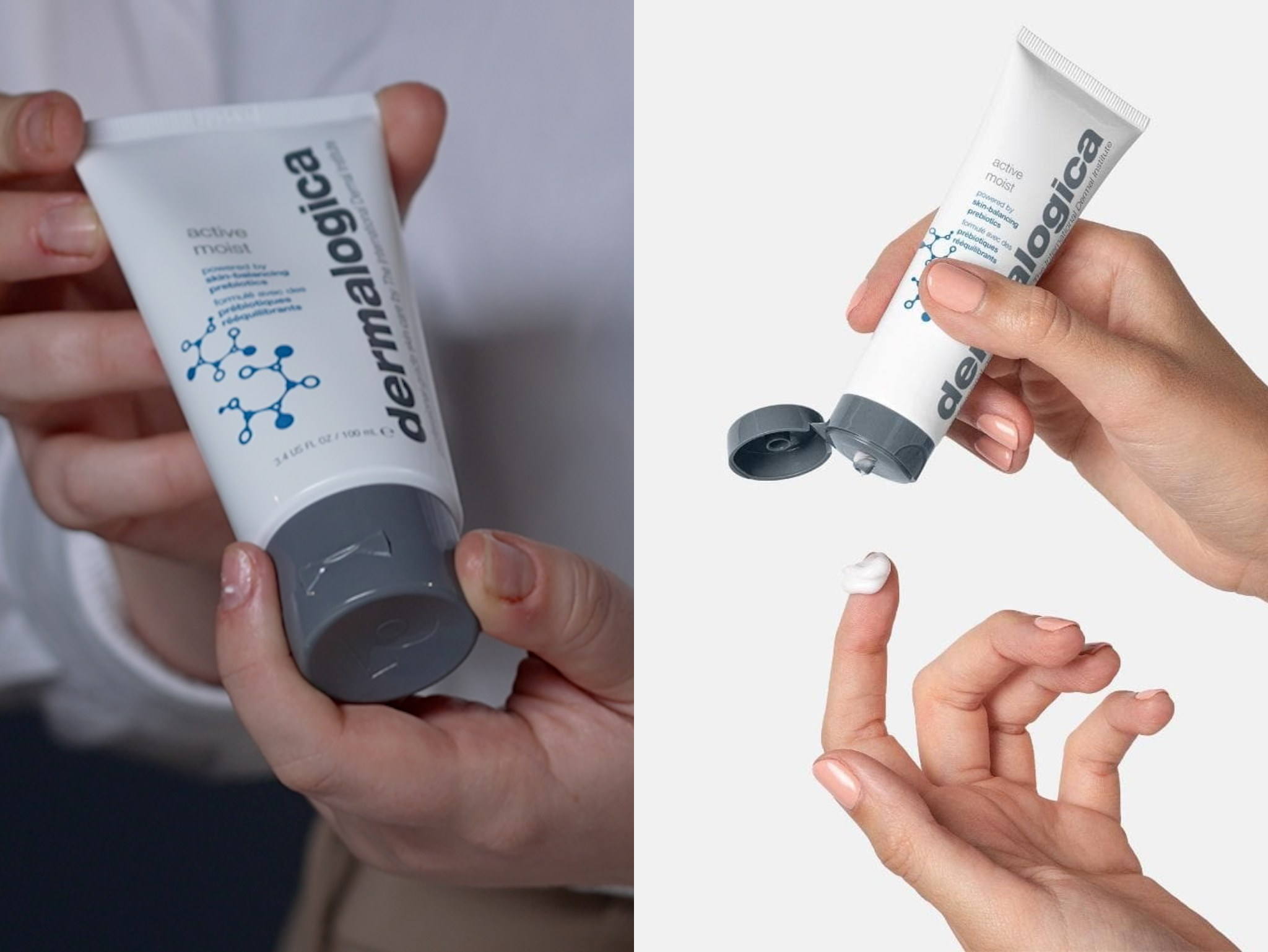
- Best: For bumpy, textured skin
- Key ingredients: Hyaluronic acid, vitamins A, C and E, soothing cucumber and aloe and amino acids to aid skin resilience
- Fragrance-free: Yes
- Comedogenic: No
- Size: 100ml
- Why we love it
- Good value
- Great for overall skin health
- Take note
- It’s quite thick
This tube may be on the pricey side but it is double the size of its mid-range competitors (think: Clinique and The Body Shop) and boasts a big list of benefits. Upon application, it’s thicker than anticipated and does need a little working into the skin – that also means you won’t need much, thus making it a touch more cost effective. Thanks to the inclusion of vitamin E, it left my complexion looking more even-toned, while the included vitamin C left my skin looking brightened, too. Ultimately, I think it’s a great choice for slightly older oily complexions.
Seaweed oil-control gel cream
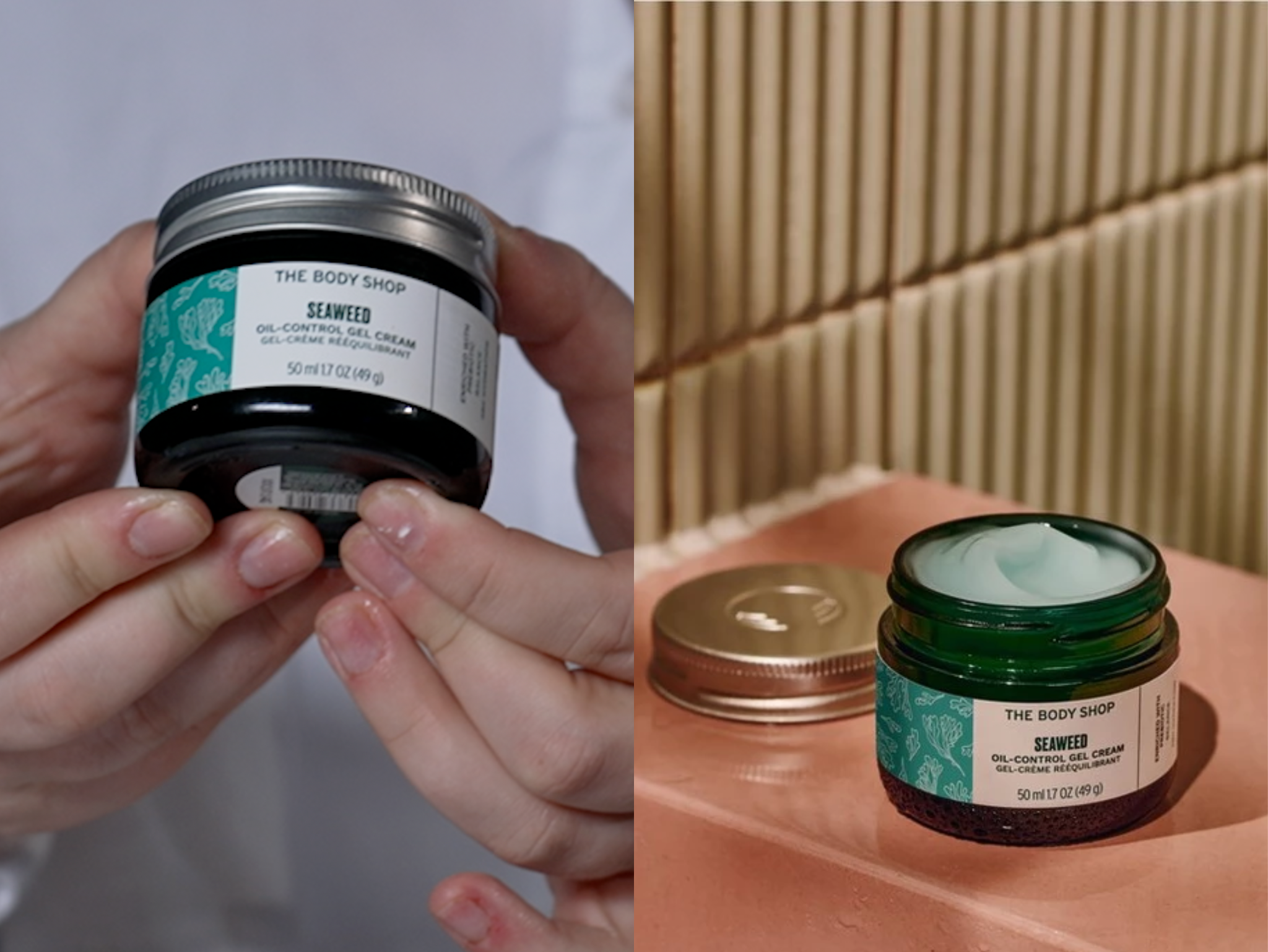
- Best: Natural moisturiser
- Key ingredients: Water, glycerin, shea butter and algae-derived antioxidants (laminaria saccharina extract)
- Fragrance-free: No
- Comedogenic: No, by all accounts, but this isn’t explicitly confirmed by the brand
- Size: 50ml
- Why we love it
- Quick to absorb
- At once oily skin-friendly and nourishing for deeper hydration
- Take note
- Scent is quite subtle
The Body Shop has long been my go-to for mid-range skincare with luxury ingredients, and this seaweed gel cream is a model example. With algae-derived antioxidants (royal sugar kelp and Irish moss), it taps into the same benefits as, for instance, the cult Elemis cleansing balm, with a two-in-one moisture-retaining, oil-balancing effect.
In use, the gel feels weightless and water-like, and would be a good formula to pop in the fridge come summer, for an icy cold application. It’s not as slippery as some of the other gel creams I’ve tested, so, you do need a little more product to adequately hydrate all over but, for less than £20, I think it’s a great oily skin option.
Charlotte Tilbury magic water cream
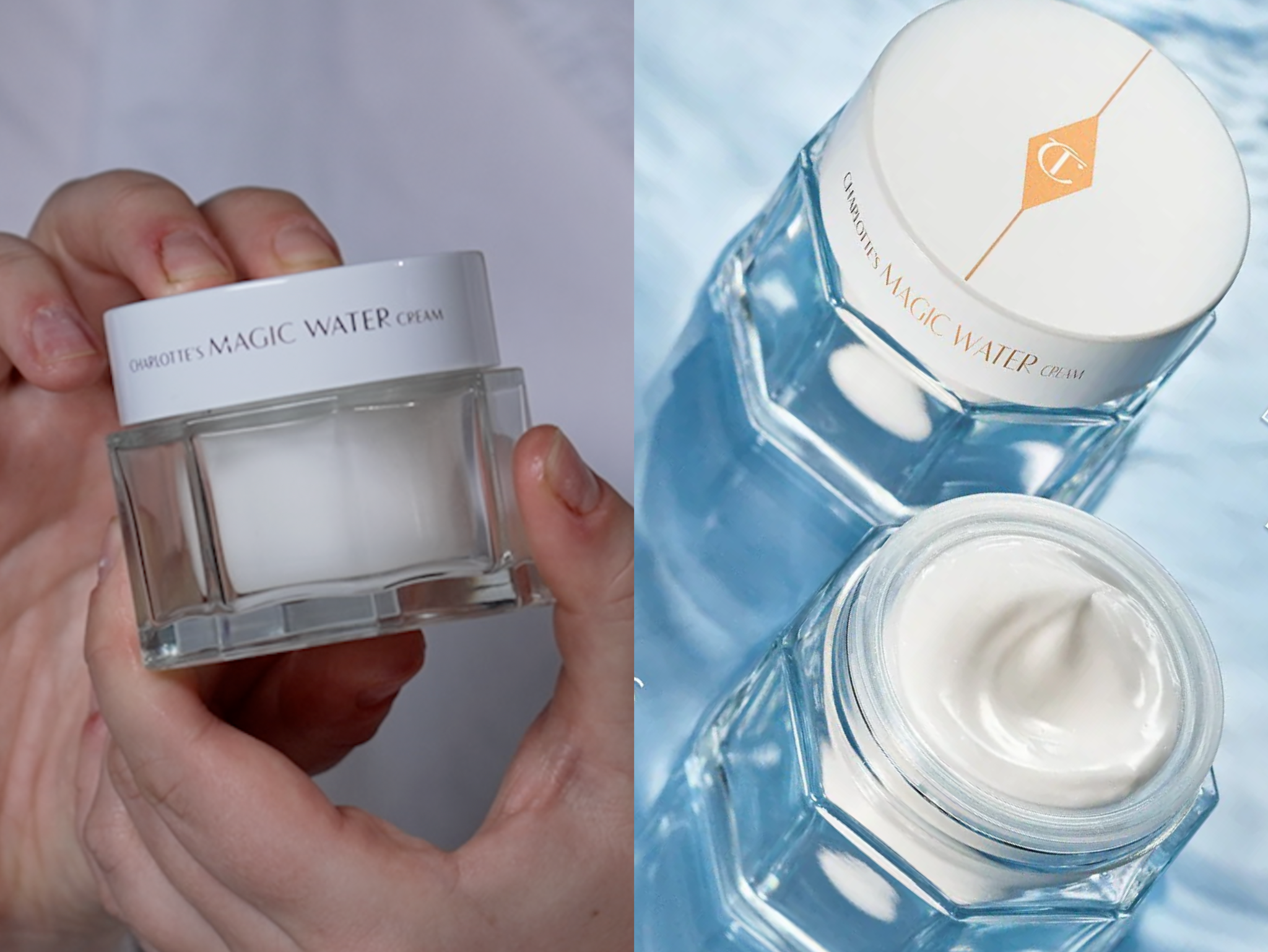
- Best: Refillable option
- Key ingredients: Water, glycerin, shea butter, squalane, peptides, niacinamide, aloe vera and hyaluronic acid
- Fragrance-free: Yes
- Comedogenic: No
- Size: 30ml
- Why we love it
- Plenty of benefits, from soothing to preventing fine lines
- Take note
- Small size for the price
In all honesty, I didn’t have high hopes for Charlotte Tilbury’s water cream, as I found the original magic cream to be thick and heavy on the skin. Reader, I had to eat my words after testing this newer iteration, with its arm-long list of skin gains, from all-day hydration to firming. For starters, the texture of the water cream is sheerer and more gel-like than its magic cream predecessor, and it permeates the skin quickly. It did leave a light sheen around my T-zone, but it skewed on the right side of glowy versus greasy.
At more than £50 for just 30ml, it is on the pricey side but the packaging is luxe – as is standard with Tilbury’s wares – and 50ml refills are available.
Augustinus Bader the rich cream
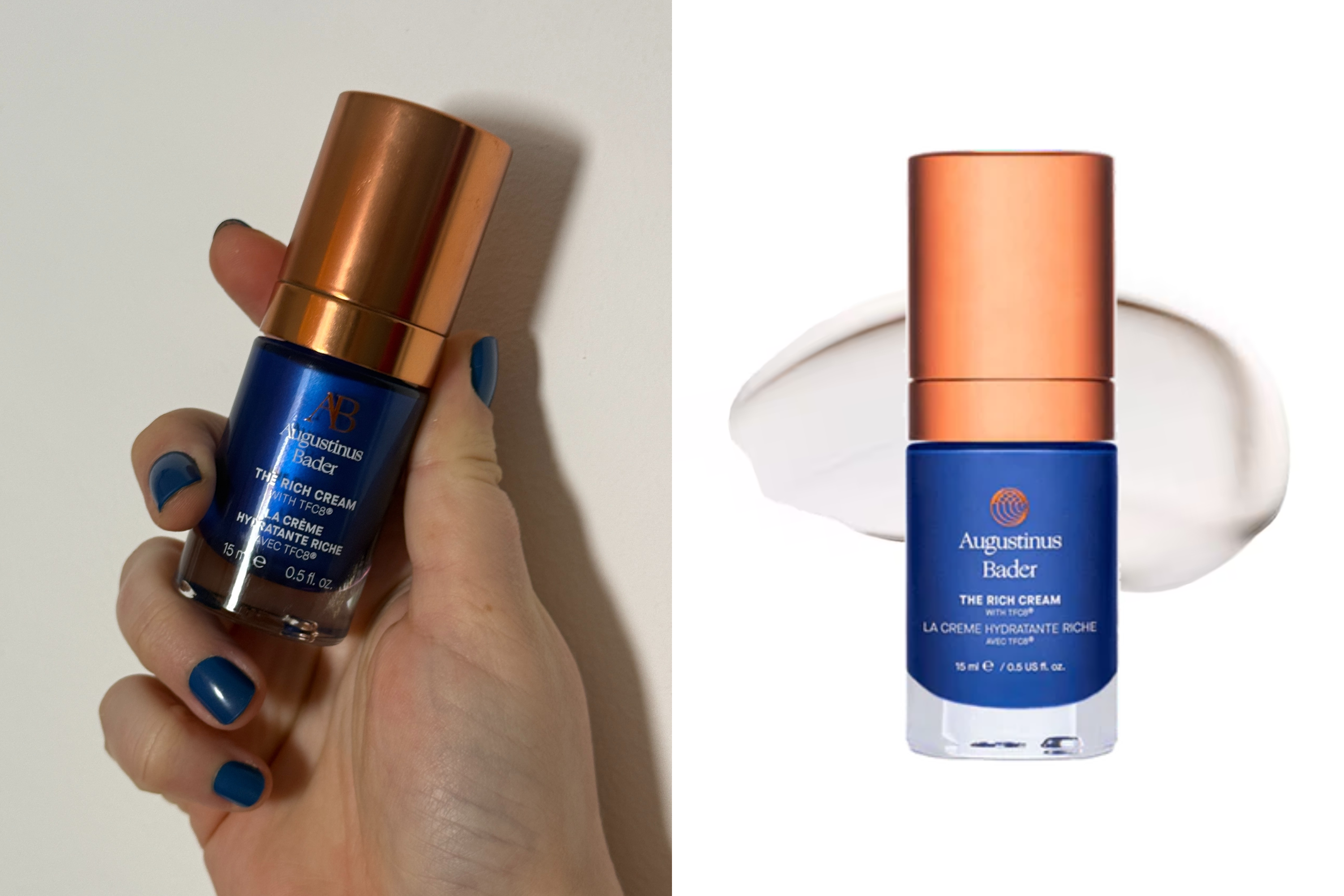
- Best: For winter
- Key ingredients: TCF8 (peptides, vitamin E and ceramides) plus glycerin and vitamin C
- Fragrance free: Yes
- Comedogenic: No
- Size: 15ml
- Why we love it
- Layers well with other products and make-up, without causing product separation
- Sinks in quickly
- Take note
- A little doesn’t go a long way
- Expensive
Now, this is a moisturiser I certainly didn’t expect to find suitable for my oily skin. Indeed, with a title that centres itself around the ‘richness’ of the formula, it’s the sort of thing I’d normally steer clear of. However, after forgetting a moisturiser on a trip with my mum, Augustinus Bader’s the rich cream was her usual tonic of choice and, for that trip, it became mine, too.
I used this moisturiser for a week, morning and night, and found it adequately hydrated my skin, without prompting midday shine, nor an oily, slick feel. For the price, I was slightly disappointed by how much of it I had to use, given its rich branding, but there’s no doubt it helps to plump and rejuvenate the skin. No wonder it’s amassed quite the following – if I had the expendable income to repurchase on repeat, I certainly would.
The verdict: Moisturisers for oily skin
Overall, the Avène moisturiser walked a perfect line between affordable and luxury with just enough fragrance to feel high-end, and simple enough packaging to keep costs reasonable. I enjoyed its balance of hydration and comfort with both HA and squalane, and it was ideal how quickly it sunk into the skin. Clinique’s moisture surge proved an excellent premium pick, while Neutrogena’s was adequately quenching (and affordable).
Looking for a new skincare routine? Check out our guide to the best retinol eye creams

